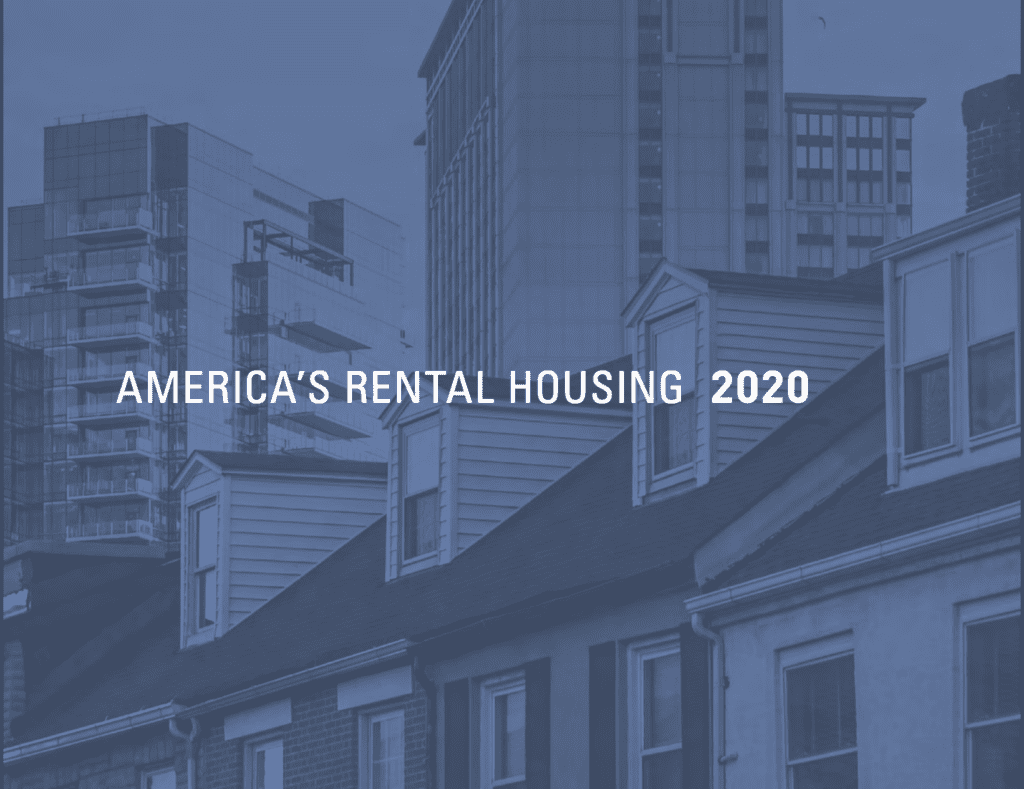
Around the State
Housing Credit News and Analysis
Preliminary applications for the 2020 allocation cycle for North Carolina’s Low-Income Housing Tax Credits were submitted in late January. The Coalition published a blog examining the early trends that can be gleaned from this year’s proposed projects and the impact of the lack of Workforce Housing Loan Program funding. That post can be read here.
Last week the IRS released guidance on income averaging, helping to clarify how to determine the income limits in the average income test for LIHTC purposes. The guidance information can be read here.
Lastly, the featured blog for this edition of Housing Matters comes from a guest writer, Frank Muraca, a graduate student at UNC Chapel Hill’s City & Regional Planning program. Muraca shares with us some of his analysis of the impact of the North Carolina QAP’s neighborhood amenities requirements and how they shape the location of affordable housing around the state. The blog can be read here.
Update of McDougald Terrace
Evacuated McDougald Terrace residents in Durham continue to be temporarily housed in area hotels, almost exactly one month since they were first relocated. According to Durham Housing Authority (DHA) CEO Anthony Scott, residents can expect to remain away from their homes for at least another 2-3 weeks.
DHA is in the process of making repairs it estimates will cost approximately $4.3 million. Aside from repairs related to carbon monoxide exposure, DHA is also performing mechanical, electrical, and plumbing repairs and also replacing heaters & hot water heaters “as needed.”
Residents remain angry and frustrated by the response of DHA and City of Durham officials. On January 21st residents asked to speak at the City Council meeting. Mayor Schewel denied the request stating that the McDougald Terrace crisis was not on the agenda and residents had already spoken at a previous Council meeting. A couple days after the denial to be heard, residents held a rally outside City Hall while the City Council and Mayor conducted an official “work session” inside. Close to 100 people attended the rally. Resident leader, Ashley Canaday, sat in a cardboard box while leading chants as a visual display of the conditions that children must endure while staying at the hotels. Many residents complained about hotel management asking that children not play outside and remain in the small hotel rooms. Participants then moved inside. This time the Council allowed residents and supporters to make public remarks.
Residents demanded to be kept updated on what DHA was doing and timelines for repairs. Residents also spoke about how disruptive remaining in hotels has been, especially for children. After residents spoke, Mayor Schewel pledged that if DHA is unable to provide funding to “address” the situation & unable to secure other sources from the federal government, the City would “step in” to assist.
Town of Apex Seeking Consultant for Affordable Housing Plan
The Town of Apex is seeking the services of a qualified firm, or team of firms, to provide professional services for the development of the Town of Apex Affordable Housing Plan which would establish a long-term (10 year) vision, but include short-term recommendations and tools for immediate implementation. The complete RFP, including details regarding submittal, is available on the Town’s website at https://www.apexnc.org/Bids.aspx. If interested, please respond by the deadline of February 20, 2020 at 4:00pm. Questions and discussion with staff prior to firm selection are not allowable.
National
Housing as a Human Right: The People’s Housing Platform
Last Wednesday a group of Congresspersons – Representatives Pramila Jayapal (D-WA), Chuy Garcia (D-IL), Alexandria Ocasio-Cortez (D-NY), Ayana Pressley (D-MA), Ilhan Omar (D-MN), Rashida Tlaib (D-MI), and Earl Blumenauer (D-OR) – introduced “The People’s Housing Platform,” a bold set of proposals to broadly address housing and homelessness issues.
The platform consists of seven policy proposals designed to tackle different aspects of the nationwide housing affordability crisis, including tenant rights, homelessness, the deterioration of the nation’s public housing stock, and the role speculation plays in rising housing costs.
The components includes some bills that have already been introduced individually along with new policy proposals:
- “A Place to Prosper Act,” (introduced by Rep. Ocasio-Cortez in September 2019) which would reform existing housing laws and regulations to expand assistance, strengthen tenant rights, invest $10 billion in lead abatement, and tie highway funding to equitable development practices.
- A proposal by Rep. Pressley that would create a massive investment in the public housing stock through the Housing Trust Fund, increase tenant input through strengthened resident councils, and link transit and infrastructure spending to a reform of exclusionary zoning policies (municipalities must get rid of height restrictions, for instance, to qualify for funding).
- Rep. Ilhan Omar’s previously introduced Homes for All Act, which would allocate new funding for the construction of 10 million new public housing units and create a $200 billion community control and anti-displacement fund to fight gentrification; it has an estimated $1 trillion price tag.
- Rep. Tlaib’s proposal to replace the Opportunity Zone program with a Community Benefits Fund that would provide grants for community land trusts, land banks, and nonprofits working in underinvested communities, all funded by the repeal of Opportunity Zones (in other words, arguing that the tax revenue that was expected to be lost from that program could be redirected to other spending)
- Rep. Pramila Jayapal’s proposal to combat homelessness, the Housing is a Human Right Act, by increasing funding for a range of support services including medical and mental health treatment, and aims to ensure homelessness services are available to all who need them
- Rep. Earl Blumenauer’s proposal to offer a refundable monthly tax credit for renters and tax credits to help potential first-time homebuyers
- A bill fighting real estate speculation that Rep. Chuy Garcia is currently finalizing (details will be released later this year).
House Committees Introduce “Moving Forward Framework”
Also on Wednesday January 29, the House Ways & Means, Transportation and Infrastructure, and the Energy & Commerce committees released a policy framework designed to make transformative investments in infrastructure. The proposal, called the “Moving Forward Framework,” is a 5-year plan to invest approximately $760 billion into addressing critical needs in highways, rail, and transit systems, airports, ports and harbors, wastewater and drinking water infrastructure, brownfields, and broadband. Affordable housing would be impacted by this framework through the expansion of existing infrastructure tax credits and the creation of new credits to improve investment, including those driven by New Markets Tax Credits, Low-Income Housing Tax Credits, and the Historic Rehabilitation Tax Credit.
New JCHS Report on Rental Housing
On Friday, January 31st, the Harvard Joint Center for Housing Studies, released their annual report on “America’s Rental Housing.” The main takeaway from the report is that housing unaffordability is climbing up the economic ladder. After three years of modest declines, the number of cost burdened renter households—those paying at least 30 percent of income for housing and utilities—increased to 20.8 million in 2018, bringing the cost-burdened share to 47.5 percent. Higher-income households with incomes of $75,000 and above accounted for more than three quarters of the growth in renters (3.2 million) between 2010 and 2018 and the new rental housing supply has been concentrated at the upper end of the market. These factors have contributed to shortages in affordable rental housing for low- and moderate-income households — the median monthly asking rent for unfurnished apartments completed in 2018 was just over $1,600, well above the $900 median contract rent for all units in 2018. Further, rental vacancies are at their lowest point in over three decades, averaging 6.8 percent over the last four quarters, the lowest reading on record since 1986. Read the new report on the JCHS website.
New Presidential Housing Plans
Last Thursday, Presidential candidate, Mike Bloomberg, former Mayor of New York City, announced his own housing specific policy platform. He had previously touched on housing policy through proposals designed to address racial wealth inequality, such as declining black homeownership, and the role of buildings in contributing to climate change. Bloomberg plans to guarantee rental assistance to all that qualify and to cut homelessness in half within four years through dramatic federal investment into housing programs.
Another Presidential candidate, former Massachusetts Governor Deval Patrick also unveiled his housing policy plan last week. Patrick plans to address the housing crisis with a focus on investment into developing more workforce housing units, providing rental assistance, and raising the minimum wage.
Reports/Resources
North Carolina Institute of Medicine – “Healthy NC 2030: A Path Toward Health”
Urban Institute – “The Impacts of US Military Service on Homeownership and Income”
Enterprise Policy & Research Development – “Leveraging Property Owned by Faith-Based Organizations to Create Affordable Homes and Public Benefit”
Urban Institute – “Housing Supply Chartbook”
Urban Institute – “The Community Reinvestment Act Gaces Major Changes, but Regulators Are Not Aligned”








